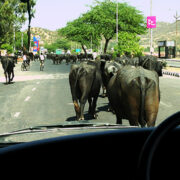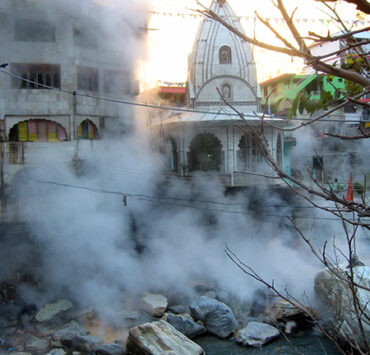What is this raging addiction that humankind has to that mind-boggling phenomenon called ‘love’? It’s a small, four-letter word, which manifests itself in so many varied forms, shades, and methods, that one is often in a quandary when expected to filter any other type of emotion from this… this… perpetual leech! It bloody reeks of love, this whole, wide world! Then again, there is hate. But what is hate, if not a manifestation of love? Okay, am I sounding like a condescending sage? Cross that out.
So, the other day, I was reading this incredibly moving book: Love in the Time of Cholera, a fad by Gabriel Garcia Marquez (I have omitted the queer symbols over certain vowels of his name for I have no clue regarding their pronunciation, and I am slighta lazy). This book is not one over which you will cry buckets of tears. This book is also not like the epic Gone With the Wind, in the sense that you will not drool over the protagonists, the ‘hero’ Florentino Ariza or the ‘lady love’ Fermina Daza. This book is real. It shakes the very foundation of life, and love, within you and reduces you to nothing but a heap of confused, and confusing, emotions. It is a beautiful experience, almost like being born again.

Love is in the water, love is in the air. Photograph by Sneha A.
Of course, that is if you believe in love. No, not the mushy, I-luv-u-coz-u-luk-lyk-a-flwr love, but the real stuff. The austere, painful, joyous, and completely insane adventure called love. The love that binds us all together; the love of an eccentric mother for her lost son; the love of an obsessive father for his rebellious tomboy; the love of a weakling of a son for that drama queen; the love of a manipulative sister for her incestuous brother; the love of a dreamy-eyed sixteen-year-old girl for her girlfriend; the love for Google that all of us share—that love.
Why do we glorify the departure of a lover, when there is enough love to keep us going? Why is separation laced with tears, heart-wrenching poetry, maddeningly complicated prose, with suicide, and with murder? Why isn’t separation the size and magnitude of a line or a word? Why is the carnal love between a man and a woman so cinematically showcased? Why are love stories such a rage? Especially tragic ones! The painful look in the lovers’s eyes, the sacrifice she/he has borne in the name of love, the manipulation by the rest of this “heartless” world, the sheer misery of infidelity, the public persecution of the soona suhaag and all of that. Crass. (Now, now, now, don’t you dare catapult me into the I Hate Luv Storys box, because I loathed that movie.)
I was in Orissa, at my aunt’s place, about a year ago. A perfectly normal day, with my aunt’s maid, Radha (I am not making it up, clichés are born out of reality), not turning up for work. Speculation arose as to the reason for her prolonged absence (for three days), and patience was soon running out. The next day, however, she did come. She looked the same: Curly mass of hair, those eager, fiery eyes, and that fighter-like body, biceps et al.
There was a slight difference, however, and that was the dearth of that hue of red that sat proudly on her forehead and her parting. Also was missing the abundance of glass bangles on her wrist, and a brightly-coloured sari. She was solemn—not sad, but solemn. Her husband had passed away three days ago. When asked about how she felt, and whether she wanted more days off, she smiled and said, “He was always drunk, hardly ever at home, a perpetual expense… even though I loved him so dearly. I am fine! His children miss him, of course. But they’ll get used to it. I love them, our whole community is there to take care of them. We have the whole world with us. Just because one person departs, that doesn’t mean there isn’t enough love or care.” She skipped a little, having accepted what life presented to her, and was back on track. I asked my aunt whether she had a broken marriage or something, and surprisingly, she didn’t. She fell in love at the age of 18, ran away from home and got married, and now, after 12 years, her husband had died—and look at her! Blasphemy? Nah. An inspiration. She still talks about him, but her austerity doesn’t give her the luxury of being too sentimental. And, knowing her, I don’t think she’d have it any other way.
Does the lack of activity make a person drown in his or her misery? Or is it the fact that too much emphasis has been given to a class of people who can afford to have the time, and resources, to throne their heartache on display for the crowd? Is the world just a bunch of sentimentalists and masochists, who refuse to live in reality? Oh, the glorification of misery, the sheer glorification!
Sure, I realise that I may not be fit to pass judgement on such a personal issue. Different people, different opinions. But, yes, Radha was a breath of fresh air!
P.S. I do not love you too. Boohoo.









Would you have been able to write such an excellent piece if you weren't in love yourself?
Well, I don’t mean to diss your piece but I think the treatment of the subject is quite immature. E.g. – On one hand, you look down upon love stories because you think they are stereotypical and exaggerated and on the other hand, you go ahead and accept, that “cliches are born out of reality”. So, what is the point that you are trying to make? You don’t like reality? At least not enough to see it on screen?